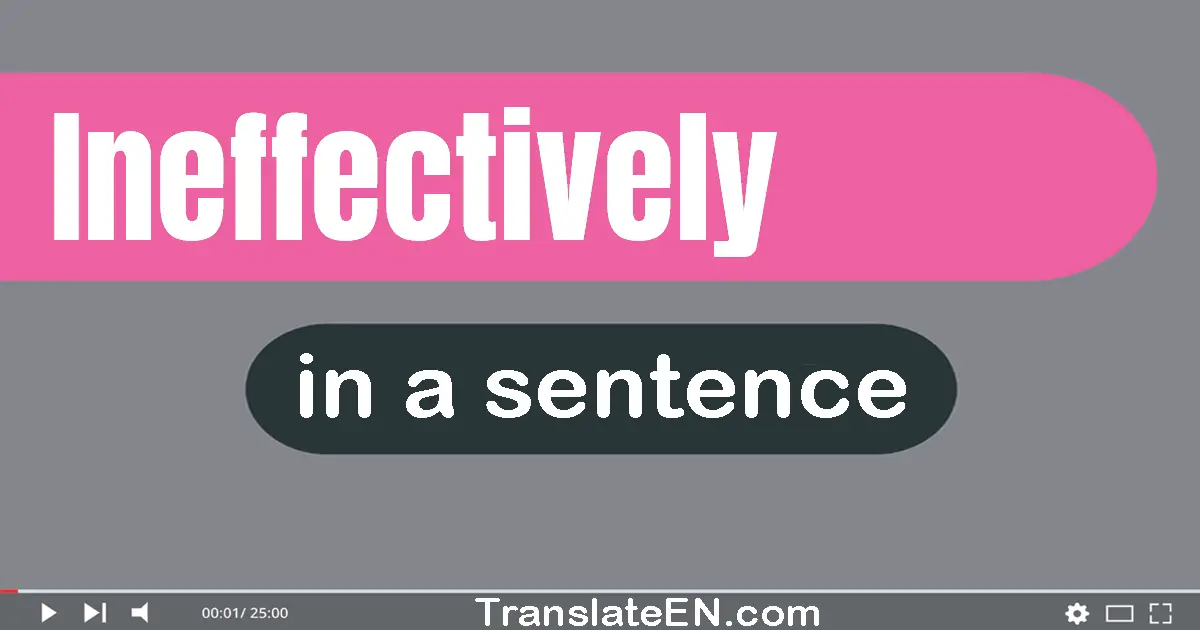Ineffectively in a sentence
Synonym: ineffectually, unsuccessfully. Antonym: effectively
Meaning: In a manner that does not produce the desired result; significant in discussions of outcomes.

(1) The team worked ineffectively to complete the project on time.
(2) The teacher taught the lesson ineffectively, leaving the students confused.
(3) The law enforcement agency responded ineffectively to the emergency situation.
(4) The company's marketing campaign was executed ineffectively, resulting in low sales.
(5) The security measures were implemented ineffectively, resulting in a breach of data.
(6) The politician's speech was delivered ineffectively, failing to persuade the audience.
(7) The medication was administered ineffectively, causing the patient's condition to worsen.
(8) The organization's policies were implemented ineffectively, causing chaos among employees.
(9) The charity's fundraising efforts were executed ineffectively, resulting in a lack of donations.
(10) The customer service representative handled the complaint ineffectively, leaving the customer dissatisfied.
Ineffectively meaning
Ineffectively is an adverb that describes something that is done in a way that is not successful or efficient. It is often used to describe actions or behaviors that do not achieve the desired result or have little impact. If you want to use the word ineffectively in a sentence, there are a few tips that can help you do so effectively. Here are some examples:
1. Use it to describe a specific action or behavior: When using the word ineffectively, it is important to be specific about what action or behavior you are referring to.
For example, you might say, "The company's marketing campaign was executed ineffectively," rather than simply saying, "The company was ineffectively marketed."
2. Use it to describe a lack of impact: Ineffectively can also be used to describe something that has little impact or influence.
For example, you might say, "The new policy was implemented ineffectively, as it had no noticeable impact on employee behavior."
3. Use it to describe a failure to achieve a goal: Another way to use the word ineffectively is to describe a failure to achieve a specific goal.
For example, you might say, "The team's strategy was executed ineffectively, as they failed to meet their sales targets."
4. Use it to contrast with effective: Ineffectively is often used in contrast with the word effective, to highlight the difference between something that works well and something that does not.
For example, you might say, "The new software was implemented effectively, but the training program was executed ineffectively."
5. Use it sparingly:
Finally, it is important to use the word ineffectively sparingly, as it can come across as negative or critical. Instead, try to focus on positive actions and behaviors, and only use the word when it is necessary to describe a specific situation or outcome.
In conclusion, the word ineffectively can be a useful tool for describing actions or behaviors that do not achieve the desired result. By following these tips, you can use the word effectively and accurately in your writing or speech.
The word usage examples above have been gathered from various sources to reflect current and historical usage of the word Ineffectively. They do not represent the opinions of TranslateEN.com.
